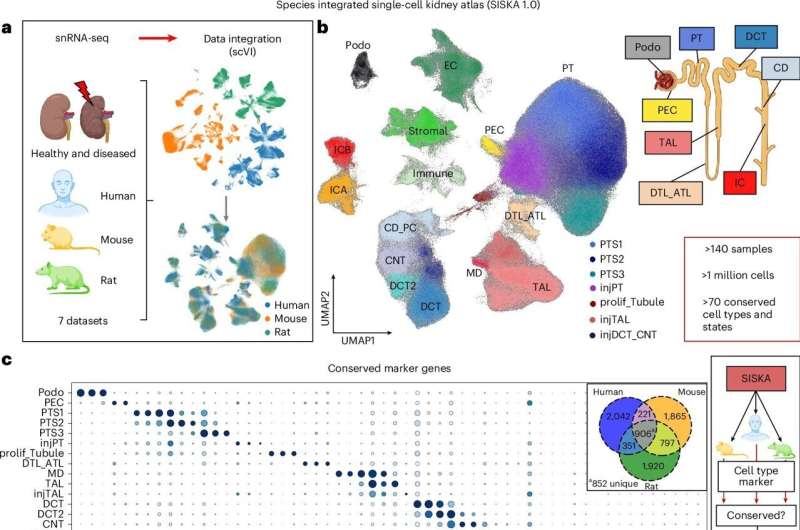“We are moving from guesswork to precision,” said Katalin Susztak, MD, Ph.D., a professor of Nephrology, Genetics and director of the Penn/CHOP Kidney Innovation Center. “Kidney diseases are not all the same, but the use of AI helped us identify and catalog 70 distinct kinds of kidney cells that appear across human and animal samples. This improves the reliability of research and can lead to potential treatments.”
AI tools transform kidney disease care
The Penn team tackled a major challenge in single-cell RNA sequencing, a cutting-edge technique that examines the genetic activity of individual cells. Until now, this method has been difficult to apply to individual patients due to inconsistent cell type definition and uncertainty about which lab models (like mice or rats) best match human diseases.

